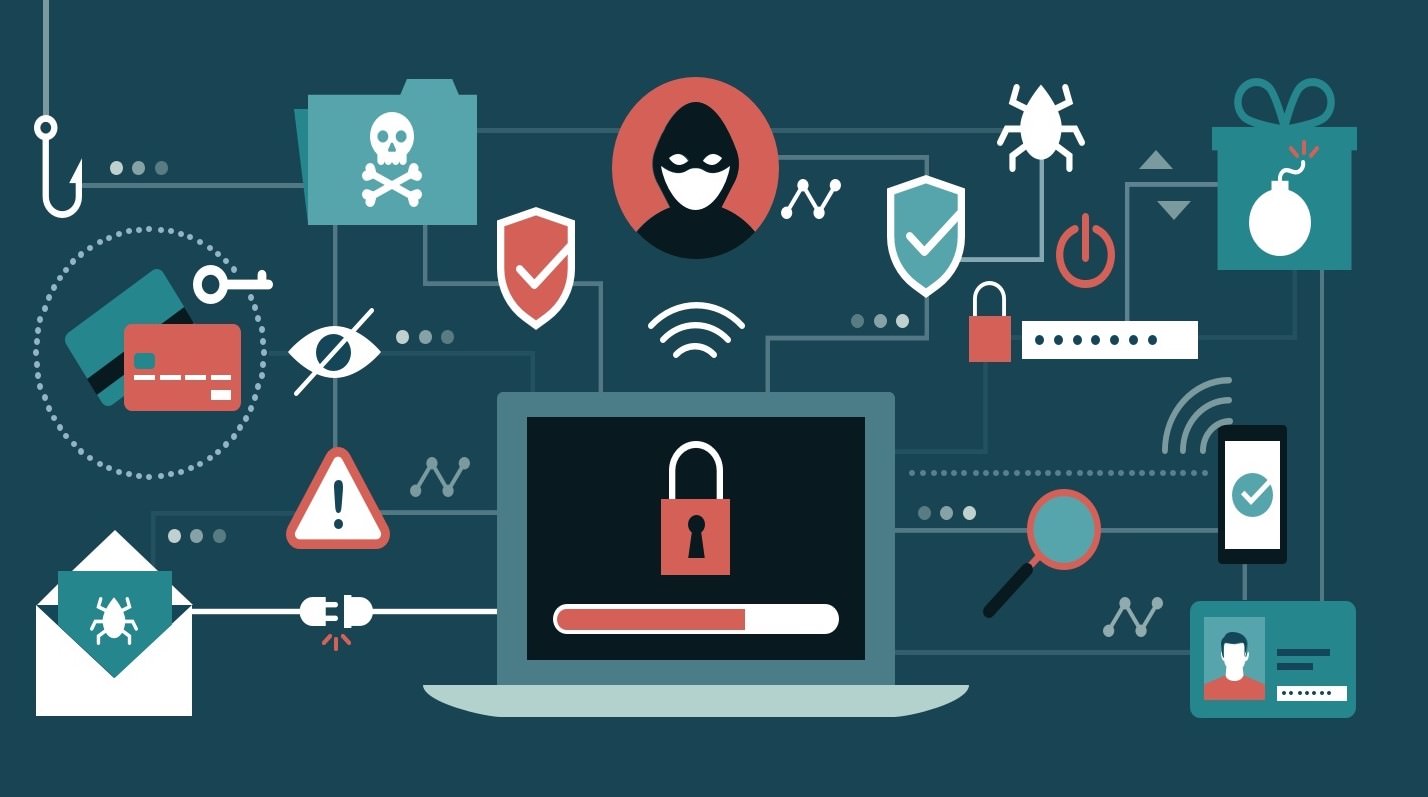We lock our doors, take self-defense, and in 2022 we even wear masks to stay safe. But there may be a digital danger posing another threat to us all – cyber scams. In this blog, you will learn how to spot the red flags and protect yourself from cyber scams.
What are cyber scams?
A cyber scam can be any form of criminal activity conducted over the internet. Cases of fraud, identity theft, ransomware, and more, could all be categorized as a cyber scam. Below are some of the most common types of cyber scams to watch for.
Online identity theft
Online identity theft is when someone, other than yourself, uses your personal information from the web to commit a crime. This can range from stealing money directly out of your bank account to opening up fake credit cards or making unauthorized purchases on lines of credit you already have. Another possible risk of online identity theft can occur when cybercriminals use or sell your information on the dark web.
Dark web crime
If you’ve been paying attention to the headlines about cybercrime, you’ve likely heard about the dark web. But unless you are a tech enthusiast, you may not know what the dark web actually is.
In order to understand the dark web and its dangers, you first need to know that only a small part of the internet can be found by Google and other search engines. The rest of cyberspace, the so-called ‘dark web’ – can be the domain of hackers, sellers of illegal goods and services, and others who could do you harm in the real world.
When a data breach occurs, or if you become the victim of online identity theft, the stolen information could be shown on the dark web.
Ransomware attacks
From the Colonial pipeline shutdown to local hospital hold-ups, ransomware attacks are sweeping the nation. According to Forbes, ransomware is any malware that infects a device and renders it unstable. In order to unlock this cryptic code, criminals will demand a ransom from the victim in order to gain back access. While ransomware mostly targets small to large businesses, anyone with a computer could be at risk.
Cyber scam red flags
Unfortunately, not all cyber scams can be avoided. But there are several things you can do and look for to minimize your risk of becoming a victim. Here are some common cyber scam red flags to be on the lookout for.
Random money request
If you get an unexpected email, call, or social media request asking for money, keep your guard up. Cybercriminals can appear in disguise as your friend or even your boss. If they ask for cash over the internet or even via text, always give them call back from a number you know and trust to confirm that it’s truly from them.
Gift cards
Gift card request are a huge red flag when it comes to cyber scams. Instead of asking for a check or money transfer, which could be traceable, cybercriminals may ask you to send gift cards instead. This helps eliminate the paper trail allowing them to use the product like cash. If you ever receive a request from someone to send them gift cards, it’s likely a scam.
A legal entity calls you
Legal entities such as the FBI and IRS will never call or email you to demand immediate payment or threaten you in anyway. If you receive a threatening call, hang up and report it.
Tips to protect yourself from cyber scams
The best way to protect yourself from cyber scams is to practice good cyber safety. Below are some tips to help you safeguard your personal data.
Use strong passwords
Using strong passwords for each of your accounts is a great way to protect yourself from cyber scams. Changing passwords frequently, and keeping your virus protection up-to-date can all enhance your cybersecurity. These actions may also help you reduce the risk of having your personal information show up in the darker corners of the internet.
Check your financial statements
Early detection is key to both prevention and recovery. With this in mind, check your bank and credit card statements frequently to make sure there are no unauthorized purchases on your account. If a fraudulent charge is made, call your bank or credit card company to alert them of the incident. Depending on their process, you may need to cancel your card or file a claim to ideally recover your money.
Monitor your credit reports
Another tip to help you protect yourself from cyber scams is to monitor your credit. By checking your 3-bureau credit reports regularly, you can quickly identify fraudulent credit claims. If the fraud has already made its way to your credit report, your best chance at removal is to file a credit dispute online. This process, known as credit disputing, will allow you to challenge the fraudulent item(s) so that your credit doesn’t pay the price for a cyber crime you didn’t commit.
Report suspicious activity
If you receive a suspicious call – or more importantly, if you believe you’ve become the victim of a cyber crime, be sure to report it to law enforcement. When money is involved, notify your banks, credit card companies, and any financial institute you do business with. If the crime impacts your credit, call each credit bureau to inform them of the issue as soon as possible. If a fraud related dispute is not required, it may also be wise to request a freeze on your credit until the problem is resolved.
Recap
Cyber scams can happen to anyone who uses technology. But for those who know the red flags such as gift card request and threatening language, the risk can be minimized. Help protect yourself from cyber scams by using strong passwords and regularly monitoring your credit and bank statements. If fraud does cross your financial path, act fast to report, dispute, and resolve the issue before it grows into a much bigger problem.
Resources: [https://www.forbes.com/sites/forbestechcouncil/2021/06/15/how-to-guard-against-modern-ransomware-as-a-service-attacks/?sh=76419d144d4d][https://www.fbi.gov/contact-us/field-offices/washingtondc/news/press-releases/fbi-warns-of-scammers-spoofing-fbi-phone-number-in-government-impersonation-frau][https://www.irs.gov/newsroom/how-to-know-its-really-the-irs-calling-or-knocking-on-your-door]
Disclaimer: Links to third-party websites are provided for convenience only. ScoreShuttle does not endorse, support, nor is it affiliated with the content of third-party links and is not responsible for the content of a third-party website. By clicking on a third-party link, you will leave the ScoreShuttle portal. Privacy and security policies may differ from those practiced by ScoreShuttle.



